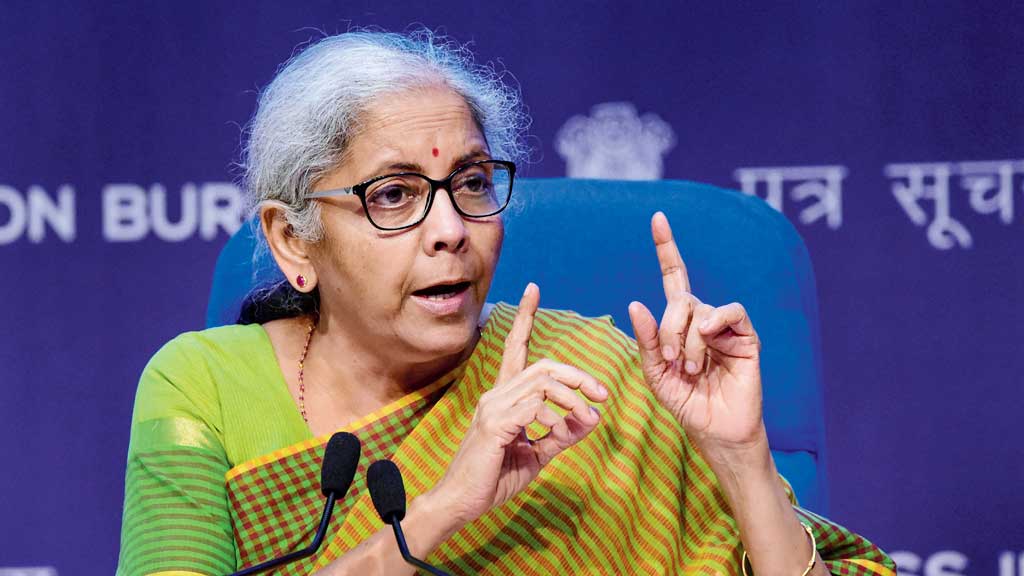Finance minister Nirmala Sitharaman on Thursday made it clear that the Reserve Bank of India will have to carry on with its accommodative monetary policy as the economy has not recovered to that extent from the pandemic to merit liquidity tightening measures on the part of the central bank.
“I am glad that the RBI understands that quicker retrieval of the liquidity from the economy may not do the necessary things to win. They have not given any indication about wanting to suck out the liquidity that is available there,” Sitharaman said while addressing the annual meeting of the Confederation of Indian Industry (CII).
The liquidity in the banking system and funds with the government has risen to Rs 10 lakh crore. Another Rs 1.7 lakh crore will enter the system by the end of the next month from the redemption of treasury bills maturing between July and September. Besides, the central bank will purchase government bonds worth Rs 1.2 lakh crore this quarter under G-SAP 2.0 (G-Sec Acquisition Programme).
Last week, the RBI’s monetary policy committee (MPC) unanimously agreed to maintain status quo on rates but voted by a 5-1 majority to continue with its accommodative policy” as long as necessary to revive and sustain growth on a durable basis.
“Growth will have its priorities, growth will be given importance and growth will be pushed both by the Reserve Bank and by us (finance ministry). It’s not “growth versus inflation for us”, Sitharaman said.
Clean energy focus
Niti Aayog chief executive officer Amitabh Kant said India can become a global leader in clean energy only if the domestic industry invests in cutting edge technology. This was needed in areas such as hydrogen, advanced solar panels, and next generation batteries.
He asked industry to switch to digital technologies and embrace solar power where the costs are down to Rs 2 per unit and will go down to Re 1 in the next five years.










